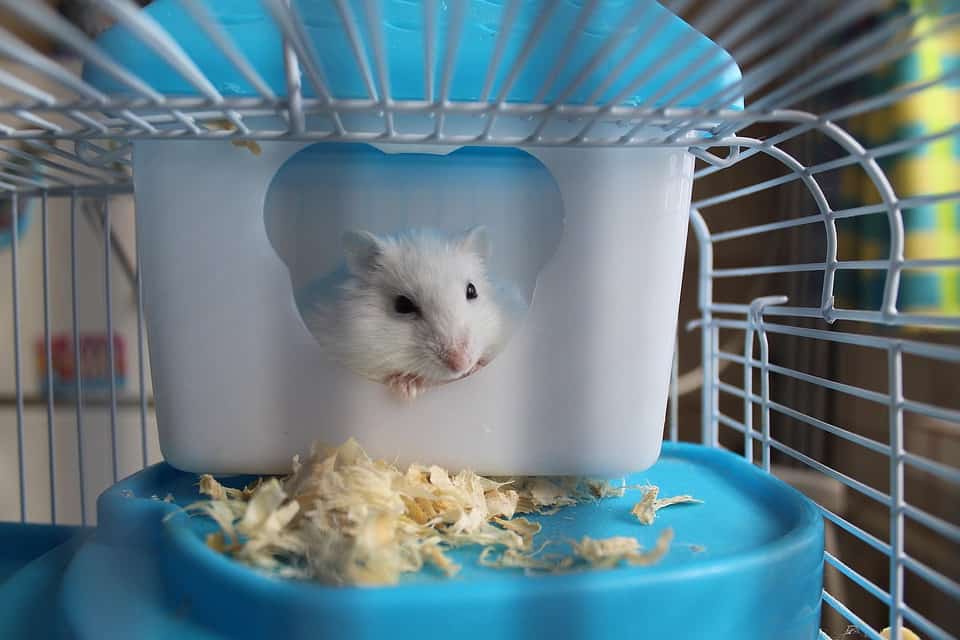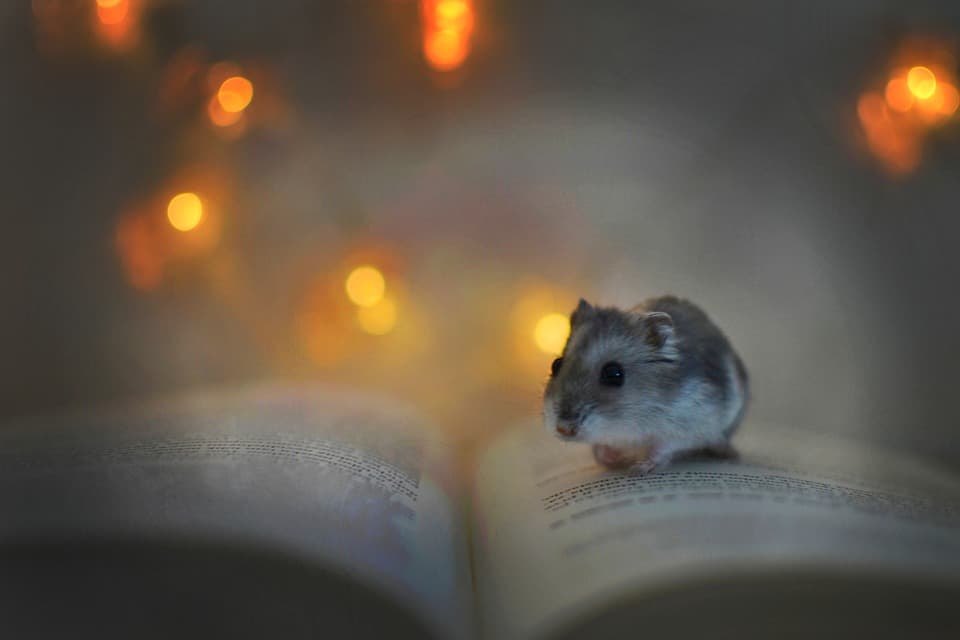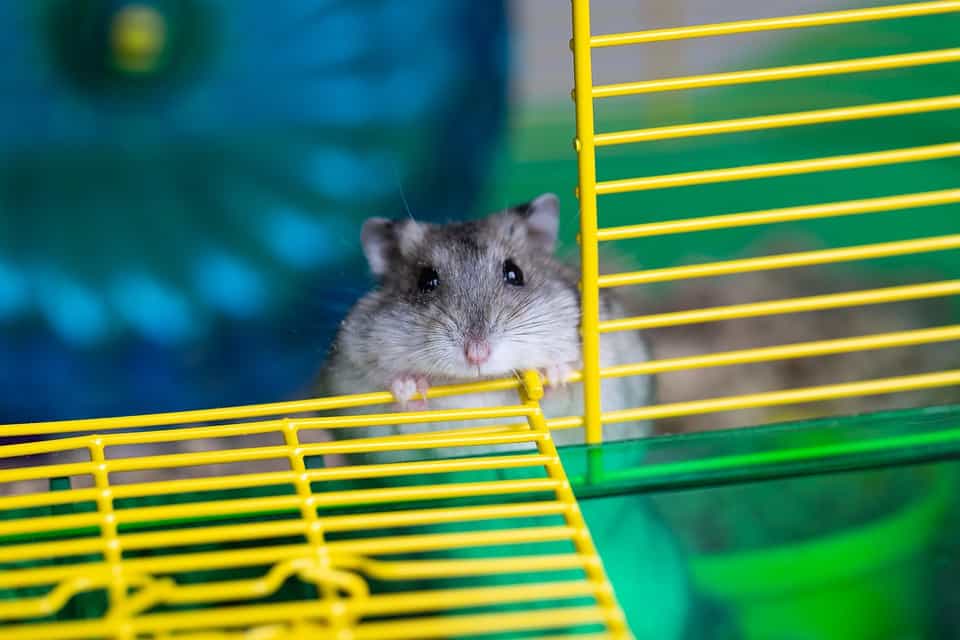Hamsters are known for being cute, low-maintenance, pets. But are they smart? We can’t ask them to take a test, so measuring their intelligence is quite difficult. Nevertheless, there are ways that we can find out whether these animals are intelligent.

Hamsters are rodents. Most rodents, such as rats and mice, are quite intelligent animals. The same applies to hamsters. They’re decently smart animals and are capable of things that require a baseline of intelligence. To figure out how smart they are exactly, let’s dig a little deeper to figure out how intelligent these little rodents really are.
Are hamsters smart? How smart are they really?
Hamsters are quite intelligent little creatures. However, intelligence can be hard to quantify, especially in animals. In hamsters, their intelligence manifests itself in a few different ways, primarily their sense of smell, problem-solving capabilities, memory, and strong hearing capabilities. Let’s take a look at each individual component to see how they affect your hamster’s intelligence.
1. Hamsters Use Smell Intelligently
Baby hamsters are born blind and even later in life their eyesight never really becomes all that strong. Because their eyesight is quite poor, they rely heavily on smell to navigate the world around them.
You might wonder what their strong sense of smell has to do with their intelligence, and that’s a good question. After all, just because an animal has a strong sense of smell does not mean that it’s intelligent, right?
The interesting thing about hamsters is that they use their keen sense of smell quite intelligently. Smell is probably one of the primary senses that hamsters use to recognize their owners. An observational study showed that Golden hamsters have at least 5 individually distinctive odors and they develop integrated, multi-odor memories (concepts) of familiar individuals.
In addition, they also use their strong sense of smell to remember places they’ve been to and to solve problems such as finding food. One study from the University of North Carolina showed that hamsters are capable of remembering spatial information through olfactory cues (scent).
Furthermore, their strong sense of smell is essential for their communication. Female hamsters in heat release a very strong odor that lets males know that they’re ready to breed. This is important because hamsters usually live in solitude. The only way they know whether someone in the area is ready to reproduce is through scent.
As you can see, hamsters use their keen sense of smell to create memories of individuals and spaces, to find food, and to reproduce. On the whole, you can definitely say that these little critters are very capable of pairing their strong sense of smell with their cognitive capabilities, which definitely makes them quite smart.
2. Hamsters Are Great Problem Solvers

Another way that the hamster proves its intelligence is through its problem-solving and memory capabilities. As you probably know, hamsters are quite capable of solving intermediate mazes and puzzles. This is only possible because they have the brain capacity to do so.
Many people wonder whether hamsters actually like solving mazes or whether they simply complete them because their owners want them to do it and because they usually get rewarded with treats afterward. Since hamsters are quite intelligent and derive joy from mental stimulation it’s highly likely that they do actually enjoy solving mazes. It scratches their problem-solving itch and helps to keep them active which releases the feel-good hormone dopamine for them.
Generally speaking, hamsters are not as gifted at problem-solving as rats are, who are the undisputed kings of rodent intelligence, but they’re still very capable problem solvers.
3. Their strong memory is a big boon to their intelligence

Hamsters also have quite a good memory. In fact, a study by John Hopkins University showed that Winter White Dwarf Hamsters used their memory to time their breeding by remembering whether days were longer or shorter in the recent past. They did this by remembering how much sunlight they received in the past. The reason they do this is that they only reproduce in the spring and summer. To determine whether it’s spring or summer, they use this memory trick!
In addition, hamsters are known for their tendency to hoard food. They do this so that they always have access to a source of food. However, in order to later find the food that they’ve hoarded they have to remember where they put it. Finding their hoarded food is another reason why hamsters have developed strong memories.
4. Hamsters can be trained

Besides playfully using their intelligence for mazes and games, you can also take advantage of your furry friend’s smarts by training them. For instance, did you know that it’s possible to teach your hamster to use a litter box? It’s true, and I highly recommend doing it! Not only does it make cleaning their cage much easier, it also helps to prevent stinkiness coming from their cage. Because hamsters are so smart, they’re capable of learning things quite quickly which makes them ideal candidates for training.
In addition to potty training, hamsters can also be taught a large variety of tricks and commands. For instance, you can teach your hamster commands such as “stand”, “jump”, or “roll over” without too much trouble. As long as you reward them with their favorite treats, hamsters are capable of learning a large variety of different things. In fact, hamsters can even learn to recognize their name and respond to hearing it!
Is there a difference in intelligence between the breeds?
There are a total of 5 different hamster breeds that humans keep as pets. Unfortunately, no studies have been done to figure out the difference in intelligence between them. It’s highly likely that they’re similarly smart, but anecdotal evidence suggests that Chinese hamsters might be slightly smarter than other breeds.
Final words
Hamsters are not only cute, they’re also very intelligent! They use their strong sense of smell, problem-solving abilities, and good memory to their advantage which makes them intelligent little creatures.
They can solve complex mazes and learn a variety of tricks and commands which goes to show that these animals are smarter than some people give them credit for.
- How Long Do American Eskimo Dogs Live? Important Factors and Care Tips - September 29, 2023
- Do American Bulldogs Need Grooming? Essential Tips and Care Guidelines - September 29, 2023
- Do Bengal Cats Enjoy Playing? Essential Tips for Keeping Them Active - September 29, 2023